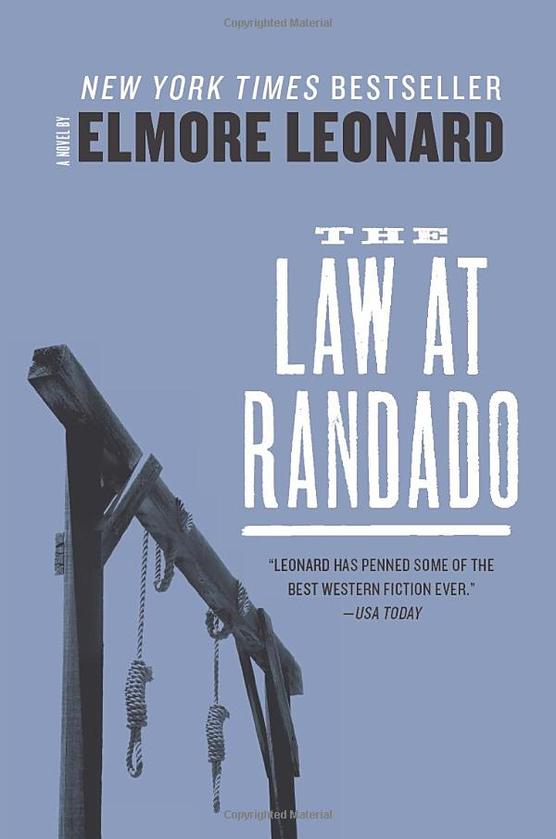I hope everyone is having a great Independence Day extra-long holiday weekend. Though, if you’re reading this, I assume you’re probably stuck with family and wish you weren’t, or at work wishing you were stuck with family. In any case, thanks for reading.
And speaking of reading…
It’s no secret that I love westerns in all their various mediums: movies, TV, novels, heck! radio shows. As the original American myth, right now is the perfect time to enjoy one. Recently I had the opportunity to get my hands on some Elmore Leonard westerns, the genre he worked in long before he became one of the great crime writers. If you aren’t familiar with the name, you’ve surely seen screen adaptations, like Get Shorty, Out of Sight, and of course the TV series Justified.
Leonard’s prose is sparse, and his plots are complex.
What many people don’t know is that he cut his teeth on westerns, many of which have also made it to the screen. The Tall T, 3:10 to Yuma, and Hombre, among others, all started as Leonard novels. He was writing at the same time as the much more prolific Louis L’Amour, and now that I’ve read one of these early works I can understand why they aren’t as popular. As one might expect from a crime writer, these westerns are a little grittier than L’Amour’s made-for-50's-TV yarns.
So they’re not bad by any means. They just don’t have the same wide appeal.
Yesterday I finished reading his second published novel, The Law at Randado (1954). Boyish Kirby Frye is a deputy sheriff, tasked with keeping the peace in Randado, answering only to county sheriff John Danaher and the townfolk. When Danaher gave him the job he knew the boy wasn’t quite a man yet, but man enough to grow into it. Or get killed trying. Danaher also recognized Frye’s thoughtfulness, intuition, and patience.
That final quality is seen as a weakness by some.
Local spoiled rich boy Phil Sundeen is Frye’s opposite. Impulsive and entitled, Sundeen is heir to one of the biggest cattle companies in the area. He takes what he wants, when he wants it, and doesn’t give a thought to tomorrow. When two Mexicans are arrested for stealing some cattle, he refuses to wait for the judge to come for sentencing. He persuades the local leadership to declare their own justice system and hang the men.
It’s anything but just.
Frye does his best to restore order, but is humiliated at every attempt. Though Danaher arrives to help, this is Frye’s job and it’s a matter of honor and self-respect that he do it and he do it right. That what Sundeen did is wrong isn’t even questioned. The real thrust of novel is Frye’s willingness to face the challenges that come his way without begging for help or stooping to Sundeen’s level. As the pressure increases Frye struggles with his duty. We know he’ll win. We don’t know if he’ll break in the process.
Even his mentor has moments of doubts. Even he has moments of weakness. Will Frye learn from observing Danaher’s mistakes?
The Law at Randado is told in third person from multiple perspectives and moves at a fast clip. Even this early on in his career, Leonard knows his craft and there’s no fat that needed trimming, which is the thing I’ve always most appreciated about his writing. Here we have the key elements of the ideal western: strong individuals coming together in harmony to establish order in untamed West.
There’s a time for violence, Leonard makes no apologies. But there’s also a time for craftiness.
Overall, I was truly impressed with the balance he strikes. This is a fun novel with something to say, not a statement with a story tacked on. I’m going to read a couple more and see what I find, and I doubt I’ll be disappointed.

























